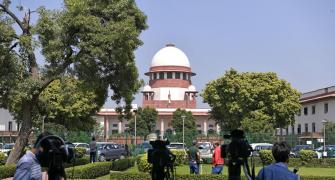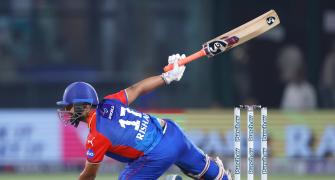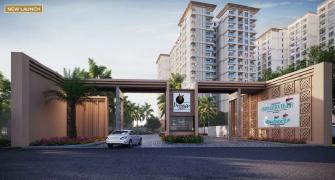More than 1350 employees of ICICI Bank has opted for institution's first early retirement option which closed on July 31.
A sizeable portion of the employees who had availed of the scheme are from the erstwhile Bank of Madura.
The total outgo for the bank on account for the scheme has been pegged at around Rs 160 crore (Rs 1.6 billion).
The voluntary retirement scheme of the bank kicked off on July 1.
Around 800 non-managerial staff has applied for the scheme. Around 2000 employees were eligible for the scheme. The erstwhile employees of ICICI (the FI) and Bank of Madura were the main targets for the scheme.
Only those employees who had joined ICICI Bank in the first two years before July 1996 were eligible to apply for the VRS. The bank had kicked off operations in 1994.
The option was available to all employees, who had completed 40 years of age and seven years of service with the bank (and all other entities that merged with the bank) as on July 31.
It offered three months salary (basic plus dearness allowance) for every year of service completed or the full residual service -- whichever is lower.
Employees and their dependents have also been offered hospitalisation expenses till the normal retirement age.
The bank has also offered discounts on loans taken by the employees. The package is capped at Rs 20 lakh (Rs 2 million) for up to joint general managers and Rs 25 lakh (Rs 2.5 million) for those above the JGM level.
The bank is now an amalgamation of eight entities ICICI, Bank of Madura, ITC Classic Finance, Anagram Finance, ICICI PFS, ICICI Caps, SCICI and ICICI Bank.
In its earlier avatar as a financial institution, ICICI had introduced its first VRS in 1996-97. Around 116 employees had availed of the scheme then.
The second VRS came in late 1999. The first two schemes shaved off 10 per cent each of ICICI employees.
ICICI Bank has a staff strength of 11,000 employees, up from 9,500 employees at the time of the merger.
Group exposure: ICICI Bank's exposure to its two largest borrowers stood at 22.3 per cent and 22.1 per cent of the total capital or 2.4 per cent and 2.3 per cent, respectively, of its total exposure.
This is above the RBI norms where the exposure ceiling for a single borrower is at 15 per cent and that for a group has been pegged at 40 per cent.
However in case of financing for infrastructure the limit for single borrower may be extended to 20 per cent of total capital and for a group it may be extended to 50 per cent of total capital. Total capital comprises Tier I and Tier II capital.
According to ICICI Bank's official, the bank has received the Reserve Bank of India's permission to exceed the exposure limits in both the cases.
The largest borrower group accounted for 44.2 per cent of total capital or 4.8 of bank's total exposure. According to the bank, this is within the prescribed limit as it takes into account infrastructure financing.
The ten largest individual borrowers accounted for 12 per cent of the total exposure while its ten largest borrower groups accounted for 23.1 per cent of total exposure.
ICICI Bank's lending to the sensitive real estate market has shown a sharp rise to Rs 2094.18 crore in fiscal 2003 as against Rs 475 crore (Rs 4.75 billion) the previous.
The lending to the commodities sector has also risen by 49.92 per cent to Rs 166.36 crore (Rs 1.66 billion) from Rs 110.96 crore (Rs 1.11 billion) the previous fiscal.
The results of fiscal 2003 however is not comparable with that of fiscal 2002 as ICICI, ICICI Personal Financial Services and ICICI Capital Services were merged into ICICI Bank as on March 30, 2002.
However the lending of the bank to the capital market sector has however shown a slight fall to Rs 169.27 crore (Rs 1.69 billion) from Rs 171.55 crore (Rs 1.71 billion) the previous year.
Also the bank's exposure to the retail sector is the highest at 22.8 per cent or Rs 19132 crore (Rs 191.32 billion) as against 7.9 per cent the year before.
Its exposure in sectors like power, iron and steel, textiles, crude petroleum and refining, automobiles have come down while than in petrochemicals, fertlisers and telecommunications have gone up.







